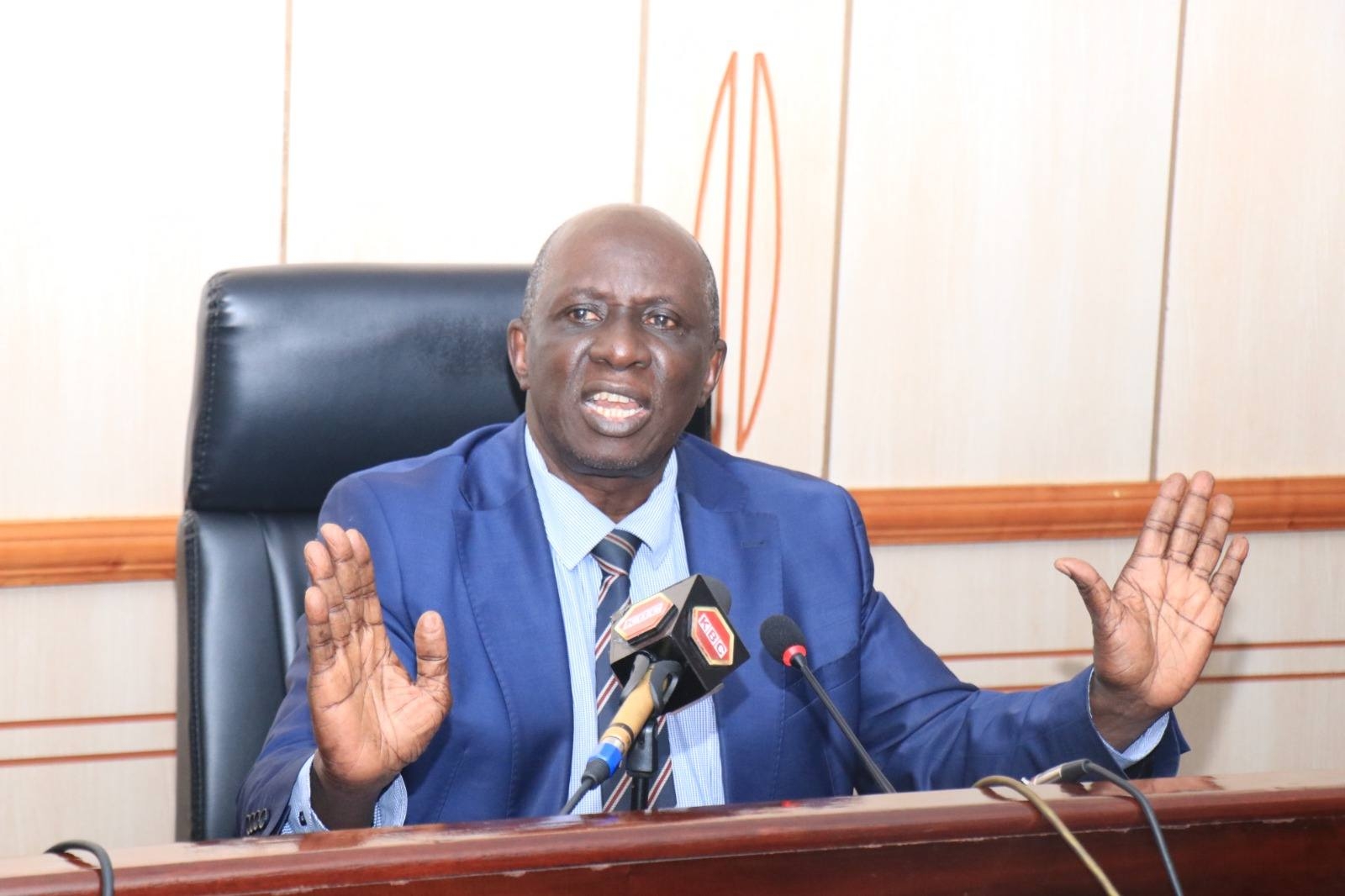Agriculture and Livestock Development CS Andrew Karanja said the ministry's diverse and dynamic approach has yielded significant achievements.
These are transforming the agricultural landscape and bolstering food security.
Karanja pointed out that one of the most impactful initiatives has been the comprehensive fertiliser subsidy programme.
“This program has seen an increase in fertiliser distribution, with bags delivered to farmers soaring from 1.4 million in 2022 to 8.6 million by 2024, marking a 514 per cent increase,” he said.
“The cost per bag has also plummeted from Sh6,000 to Sh2,500, reflecting a 58 per cent drop. This substantial decrease in input costs has not only enhanced crop yields but has also contributed significantly to national food security,” he added.
In the tea sector, Karanja said the removal of VAT on locally sourced tea intended for value addition has positively impacted smallholder farmers.
Tea earnings have risen by 11.8 per cent, from Sh59.02 in 2022 to Sh66 in 2024.
“This reform has encouraged local value addition and provided a boost to the incomes of tea growers,” the CS said.
Government efforts have also enhanced local production capacity and reduced dependency on imported edible oils.
“The edible oil sector has similarly benefited from government interventions by supplying over 556 metric tonnes of sunflower seeds and investing in coconut cultivation,” Karanja said.
“The government has increased the acreage under sunflower farming by 8.3 per cent, from 60,000 acres in 2022 to 64,980 acres in 2024,” he added.
According to a brief on the achievements by the Ministry of Agriculture in the last two years, the leather industry has also seen a significant revival.
This is through the operationalisation of the Kariokor Common Manufacturing Facility and the completion of the Central Effluent Treatment Plants at the Kenanie Industrial Leather Park.
Additionally, increased livestock insurance coverage, which has expanded by 65.5 per cent, has bolstered the industry’s capacity.
“As a result, the utilisation of processing capacity for skins has risen from 40 per cent in 2022 to 70 per cent in 2024.
The CS said in the dairy sector, the increment of the minimum price for milk from Sh37 to Sh50 per litre has led to a 13 per cent increase in milk production.
This is from 4.6 billion litres in 2022 to 5.2 billion litres in 2024.
Karanja said the policy has improved milk yields, product quality and the income of dairy farmers.
On rice production, output rose by 19 per cent from 192,299 tonnes in 2023 to 229,064 tonnes in 2024.
Milled rice production has grown by the same percentage, reducing import costs and enhancing farmers' earnings.
Integration of technology has helped to modernise the sector and improve efficiency.
Through the Kenya Integrated Agricultural Management and Information Systems, the ministry has enrolled 6.15 million farmers into a digital register.
“This system has streamlined the distribution of farm inputs via an e-voucher system, enhancing access to resources for various crops and boosting overall agricultural efficiency,” Karanja said.
Additionally, the government’s initiatives to support maize production have led to a decrease in imports by 10.8 million bags, saving the country significant foreign exchange.
The cost of maize products has dropped, benefiting consumers and reducing living costs.
Investing in processing plants and infrastructure, such as high-volume driers and aflatoxin decontamination plants, have improved the quality and efficiency of agricultural production.
In livestock farming, the expansion of livestock insurance and investments in animal genetic resources, such as the production of bull and goat semen, have supported pastoralists and enhanced herd quality.
Karanja noted that the completion of the Isiolo abattoir, further bolsters the sector's capacity.
“Overall, the ministry’s multi-faceted approach is driving substantial progress in Kenya’s agriculture and livestock sectors, demonstrating a clear commitment to the BETA agenda’s objectives of innovation, sustainability and economic transformation,” he said.
The CS assured Kenyans that the government remains dedicated to exploring new opportunities for sector development and ensuring ongoing alignment with national development goals.













